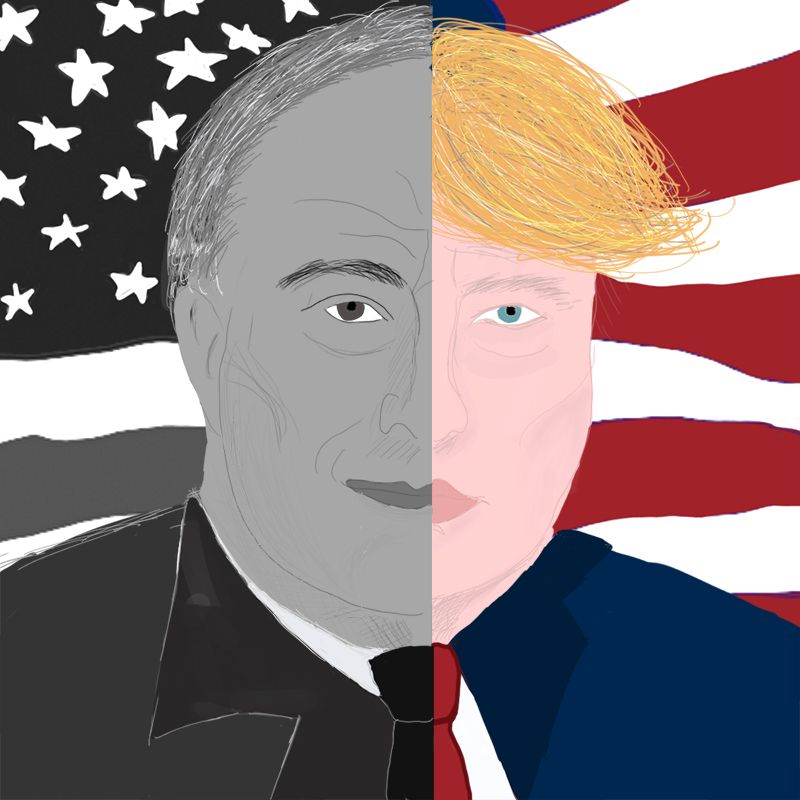President setting up precedent: Trump and FDR


On social media recently, it is very common for people to compare Donald Trump to Adolf Hitler. On the other side of the political spectrum, I have seen people compare Trump’s electoral upset to the Reagan Revolution of 1980.
These comparisons might seem fair at first glance, but they are wrong. First, Trump is not like Hitler because America’s institutions should prevent authoritarianism and, more importantly, he is not a fascist. Second, Trump is not Reagan because, frankly, he is not a conservative.
For Trump, populist is the most appropriate term to describe him.
Instead, thus far into his presidency, I think Trump shares the most commonalities with Franklin D. Roosevelt, the 32nd president.
That being said, I do not think Trump will lead America into a conflict that is similar to the scale of the Second World War.
Trump and FDR both hail from affluent families in New York. Despite their affluence, both support populist economic policies to help their people cope with the devastating effects of financial crises that occurred before they took office.
While FDR introduced the New Deal, a massive government stimulus, to help workers get back on their feet in the worst days of the Great Depression, Trump plans to spend heavily to improve infrastructure and he has been taking aim at cheap foreign labour that threatens blue collar American jobs.
Though Trump’s presidency comes more than eight years after Wall Street tanked in September 2008, resentment still lingers in America where monetary authorities, rather than fiscal, alleviated the worst effects of the crisis.
Liberals that perceive FDR as an icon are quick to forget his treatment of Japanese-Americans during the Second World War.
With the signing of Executive Order 9066 in 1942, FDR relocated west coast Japanese-Americans to internment camps in the American interior.
Over 100,000 Japanese-Americans, many of whom were native born, suffered attacks against their rights regarding property ownership and liberty.
Jump forward 75 years and we can see a president with a propensity to govern through the executive order. Both FDR’s actions against Japanese-Americans and Trump’s actions against individuals from Middle Eastern countries can be viewed as contrary to American values.
Trump and FDR both hail from affluent families in New York. Despite their affluence, both support populist economic policies to help their people…
Finally, Trump and FDR intersect in their ability to effectively communicate with the American people. FDR was the first president to fully harness the power of the radio for political purposes.
In his “fireside chats,” FDR’s ideas and rhetoric could appear in living rooms across America, fostering an intimacy between people and leader like never before.
Trump’s Tweets are the 21st century equivalent. Though Obama was skilled with social media, Trump is the first President to really harness the power of Twitter with his inflammatory remarks and, sometimes, humorous nicknames.
While FDR’s radio addresses delivered him into the American living room, Trump’s tweets consume the media cycle and are always a topic of conversation.
Roosevelt in the early ‘30s introduced America to socialist economic policies, ushered the country out of protectionism and communicated with the American people like never before. This is part of his legacy.
Though the results can be debated, it is assumed that FDR was a dignified figure that carried himself with integrity.
As of right now, it is doubtful that a writer for The Cord will write the same of President Trump in 75 years.


